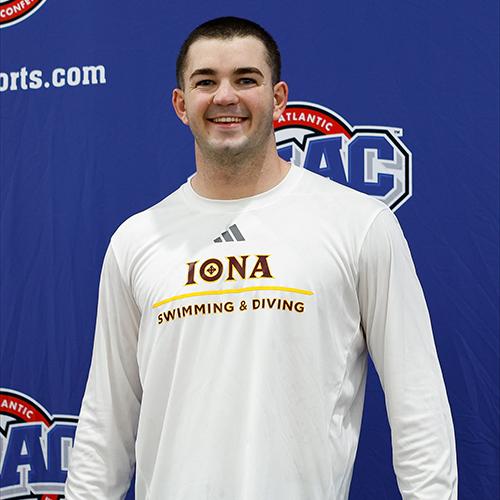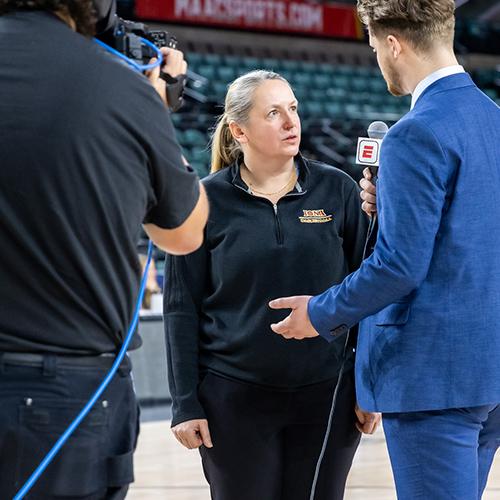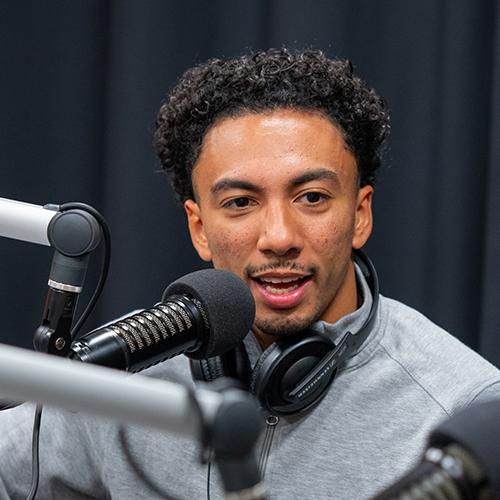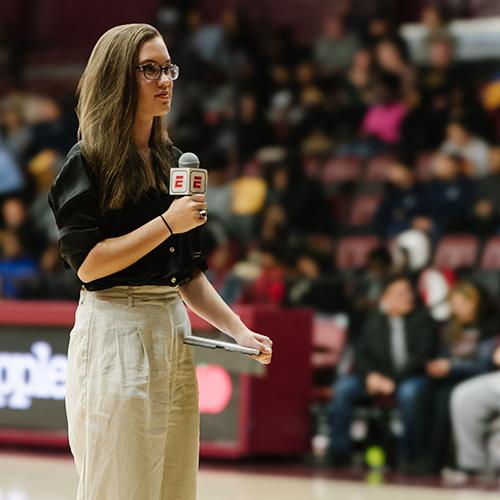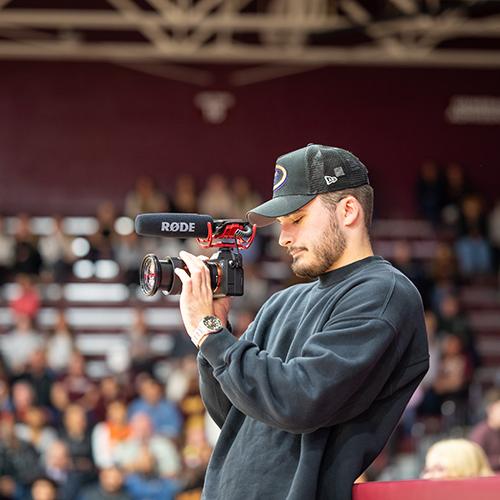Exploring What Jobs You Can Get with a Sports Communication Degree
A Master of Arts in Sports Communication and Media is a transformative degree that allows students to blend their passion for sports with a dynamic career in broadcasting, journalism, and media production. Whether you're captivated by the energy of live game reporting, the creativity of content creation, or the strategic side of public relations, this program prepares you with the essential skills needed to thrive in the competitive sports media industry.
With a mix of in-depth courses and hands-on experience, students gain the expertise required to enter a variety of roles within the sports communication field. From broadcasting and writing to media management and marketing, a sports communication degree opens diverse career pathways that combine the excitement of sports with the technical skills necessary for success in media. In this blog, we’ll explore the job opportunities available to graduates of a sports communication program and how this degree can help you launch a rewarding career in sports media.
Skills You Gain from a Sports Communication Degree
A sports communication degree equips students with a unique combination of skills tailored to the fast-paced world of sports media and entertainment. This field, which blends the principles of journalism and the excitement of sports, offers an array of opportunities for those passionate about both disciplines. Programs in sports communication often include coursework in broadcast journalism, radio hosting, sports writing, video production, and even the history of sports, providing a well-rounded foundation for success.
By understanding what sports communication is, students learn how to effectively convey stories and information about the sports industry, whether through live broadcasts, written content, or digital platforms. The specialized training gained in areas like studio production, video editing, and storytelling allows graduates to step confidently into the highly competitive world of sports media.
Through this type of preparation, students discover what you can do with a sports communication degree, including roles in live game reporting, studio and radio show production, and digital sports blogging. These skills are not only critical for traditional media roles but also for emerging fields like social media management and online sports content creation, which continue to grow as the industry evolves. With the ability to craft compelling narratives, deliver polished on-air performances, and master technical production tools, graduates of a sports communication program are well-equipped to pursue their passion for sports while building a dynamic and fulfilling career.
Career Opportunities with a Sports Communication Degree
A Master of Arts (MA) in Sports Communication opens doors to a range of career opportunities for individuals passionate about the sports industry. This advanced degree helps students refine their expertise in sports journalism, broadcasting, public relations, and marketing, making them highly competitive in the job market. With the specialized skills gained through a sports communication degree, graduates can pursue dynamic roles in live game reporting, content creation, media management, and beyond.
The sports communication field is diverse, offering opportunities to work behind the scenes or in the spotlight, depending on your interests and career goals. Exposure to various roles within the industry not only broadens your understanding of the field but also positions you to discover the career path that aligns best with your ambitions. Whether you’re aiming to become a sports journalist, PR specialist, marketing professional, or broadcaster, earning an MA in sports communication equips you with the knowledge and practical experience needed to turn your passion for sports into a successful career.
Broadcasting and Media Careers
Broadcasting and media careers in the sports industry offer exciting opportunities for those who thrive in fast-paced and dynamic environments. While the role of a sports announcer or commentator is one of the most visible and sought-after positions, these roles demand a highly specialized skill set that includes strong communication abilities, deep knowledge of sports, and the ability to think and react quickly during live events.
However, sports broadcasting is a team effort, with countless professionals working behind the scenes to ensure a seamless production. Camera operators, video editors, producers, directors, and technical engineers play vital roles in capturing and delivering the energy of live games and sports programs to audiences. These professionals handle everything from operating Steadicams on the field to managing the intricate details of studio production, sound design, and post-production editing.
Additionally, writers and content creators are integral to sports broadcasts, crafting scripts, preparing player profiles, and ensuring the coverage flows smoothly. This collaborative effort highlights how broadcasting and media careers extend far beyond the spotlight, offering opportunities for those with technical skills, creativity, and a passion for storytelling to make their mark in the industry. With the comprehensive training provided by a sports communication degree, graduates are well-prepared to pursue rewarding careers both on and off the camera in this competitive field.
Sports Journalism and Writing
Sports journalism remains a vibrant and essential part of the sports industry, offering unique opportunities for those who enjoy crafting compelling stories and analyzing the world of athletics. While the allure of sports television and live broadcasts may capture the spotlight, the written word continues to hold a powerful place in connecting fans to their favorite sports and athletes.
Sports writers work across a variety of platforms, including newspapers, magazines, digital publications, sports blogs, and official team websites. Their coverage can range from detailed reports on a single game to in-depth analysis of an entire season or sport. These professionals may focus on a specific team or athlete, offering fans insights into game strategies, player performance, and behind-the-scenes stories, or take a broader approach, writing about league-wide trends, cultural impact, or historical milestones.
In addition to traditional outlets, the growth of online media has created new opportunities for sports journalists to engage audiences through innovative content formats, such as long-form features, multimedia storytelling, and interactive articles. Armed with a sports communication degree, graduates gain the skills to excel in writing, research, and reporting, positioning them to thrive in a field where passion for sports meets the power of storytelling. Whether through print or digital channels, sports journalism continues to shape the way fans experience the games they love.
Public Relations and Media Management
Public relations and media management are vital components of the sports industry, ensuring that athletes, teams, and organizations maintain a strong public image and effectively connect with their audiences. PR specialists play a multifaceted role, handling everything from securing sponsorship deals to managing social media accounts and coordinating media appearances.
For sports teams and athletes, a well-executed PR strategy can amplify their brand, increase fan engagement, and attract lucrative partnerships. Public relations professionals craft compelling narratives, manage crises, and create opportunities for positive exposure through interviews, press releases, and community outreach initiatives. Media training is another key aspect, equipping athletes and spokespeople with the skills needed to confidently handle interviews and public engagements.
As digital platforms and social media continue to reshape how fans engage with their favorite teams and athletes, the demand for skilled PR professionals who understand both traditional and modern communication channels is higher than ever. With their expertise in storytelling, media management, and audience engagement, sports communication graduates are well-equipped to thrive in these dynamic and rewarding careers.
Marketing and Sponsorship Roles
The business of sports entertainment is a multi-billion-dollar industry, driven not only by the games themselves but also by the vast ecosystem of marketing, advertising, and sponsorships that surround them. From securing partnerships with global brands to crafting campaigns that connect fans to their favorite teams, marketing and sponsorship professionals play a critical role in the success of sports organizations.
Graduates with a Master of Arts in Sports Communication are uniquely positioned to excel in these roles, as their education provides a strong foundation in communication strategy, audience engagement, and brand management. These skills are essential for developing marketing initiatives that resonate with fans while also delivering measurable results for sponsors.
Opportunities in this field range from managing sponsorship deals for high-profile athletes and teams to designing advertising campaigns that leverage the excitement of major sporting events. Professionals in this space may also work on promoting merchandise, overseeing social media marketing efforts, or creating fan engagement strategies that drive ticket sales and viewership.
The influence of sports marketing extends far beyond traditional advertising. Today, it encompasses innovative strategies such as influencer partnerships, experiential marketing campaigns, and digital activations that connect brands with fans in meaningful ways. Armed with a sports communication degree, graduates can contribute to this dynamic and lucrative field, helping organizations and businesses capitalize on the passion and loyalty of sports audiences.
The Benefits a Master's in Sports Communication Can Provide
An M.A. in Sports Communication offers a wealth of advantages for students aiming to build successful careers in sports media, marketing, or related fields. This advanced degree not only equips students with specialized skills but also provides valuable opportunities for career advancement, networking, and professional growth.
Open the Door to Specialized Careers
The sports media industry is a dynamic and highly competitive field, where specialized training can set candidates apart from the crowd. An M.A. in Sports Communication at Iona University equips students with a comprehensive understanding of the industry and the technical expertise needed to thrive in diverse roles. The program blends traditional coursework with real-world engagement, giving graduates hands-on experience in live game reporting, video editing, show production, and more.
One of the program’s standout features is the opportunity to work directly with ESPN+ broadcasts, covering Iona’s championship Division I teams. This hands-on training not only builds critical media skills but also showcases a student’s dedication to potential employers. It provides the advanced knowledge and industry-relevant skills that employers value, helping graduates succeed in specialized roles that align with their career goals.
Broaden Your Network Opportunities
In the sports industry, who you know can be just as important as what you know, and Iona’s M.A. in Sports Communication makes building professional connections an integral part of the program. Students learn from an esteemed faculty of Emmy Award-winning sports hosts, play-by-play analysts, producers, reporters, TV hosts, editors, and content creators. These faculty members serve not only as educators but also as mentors, sharing industry insights and creating opportunities for internships and collaborations that help launch successful careers.
The program’s emphasis on experiential learning is another key advantage. Students gain real-world experience through opportunities like working in a state-of-the-art digital lab, using ESPN production equipment, and participating in the coverage of Division I championship teams. These practical experiences not only enhance technical skills but also allow students to work closely with industry professionals, expanding their networks in meaningful ways.
Located just a short distance from New York City, Iona’s campus positions students at the doorstep of one of the largest sports media markets in the world. This proximity provides access to internships with major organizations, networking events, and career opportunities that are difficult to find elsewhere. Combined with evening courses that allow for flexibility, the program supports students in building their networks and developing their expertise, all while managing personal and professional responsibilities. By the time they graduate, students are not just prepared for their careers—they’re connected to the people and opportunities that will help them succeed in the competitive sports communication field.
Continue to Develop a Specialized Skill Set
A graduate degree in sports communication not only prepares students for immediate entry into the industry but also equips them with a versatile and evolving skill set. Students develop expertise in writing, research, public speaking, video production, and content creation — skills that are critical in sports communication and adaptable to other fields. The program encourages lifelong learning, ensuring that graduates remain competitive as they grow and explore new opportunities in their careers. From internships to advanced coursework, students build a toolkit of specialized and transferable skills that enable them to excel in sports media or pivot to other areas of entertainment and communication.
By taking advantage of these pathways, students can confidently navigate their way into the world of sports communication, leveraging their graduate degree to turn their passion for sports into a rewarding career.
Unlock Your Potential with a Sports Communication Degree
If you are ready to take your love of sports to the next level, an M.A. in sports communication could be the right path. Connect with Iona University’s admissions specialists to learn more about the program, plan your campus visit, and get personalized guidance on the application process. Start building the career you’ve always dreamed of — apply today and unlock your potential in sports communication!
